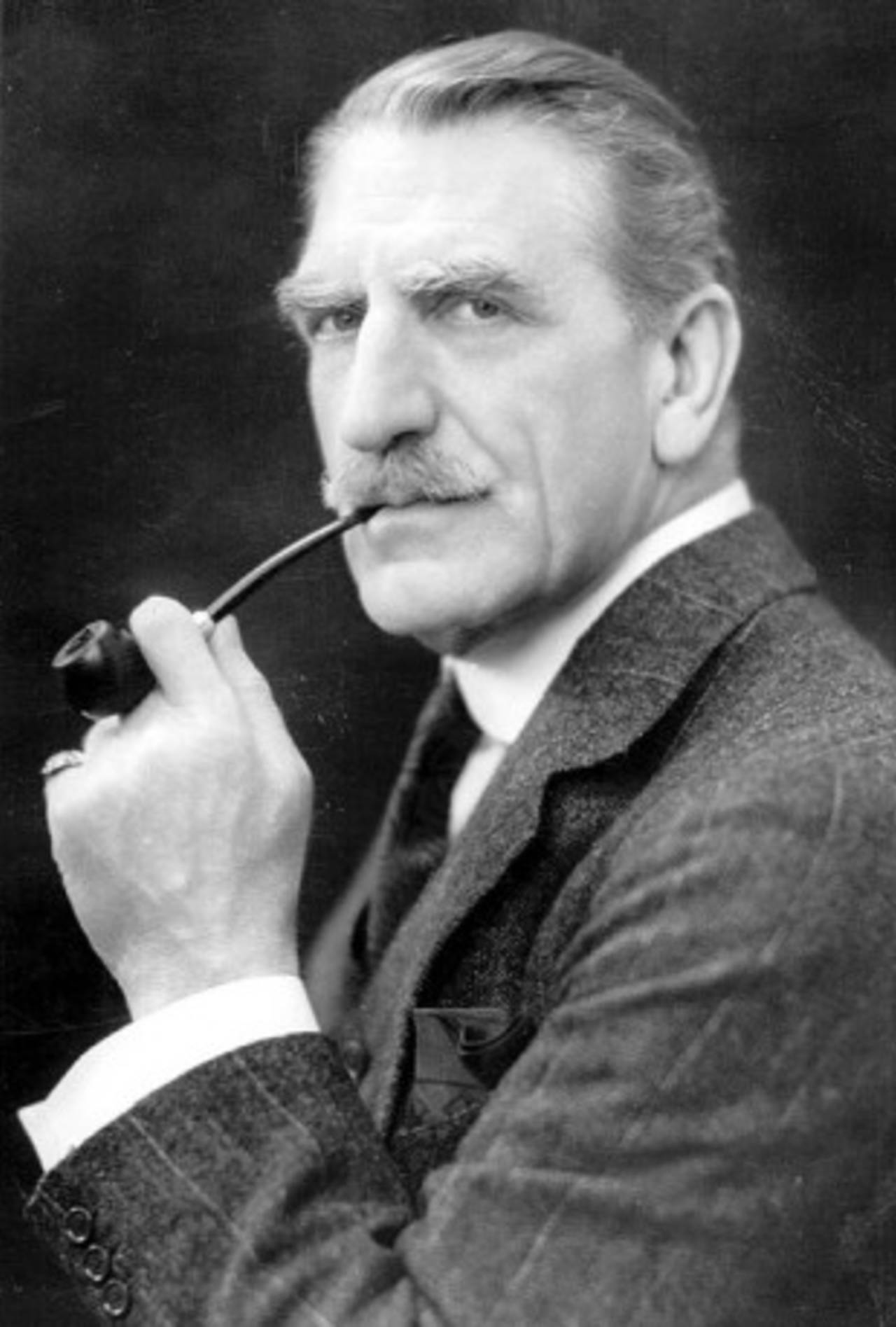An Englishman abroad
The story of the great actor-cricketer Charles Aubrey Smith, and Hollywood CC, founded in the early '30s
Martin Williamson
27-Sep-2014

Charles Aubrey Smith had a successful film career playing monarchs and crusty martinets • Getty Images
The exploits of the Hollywood Cricket Club in the decade before World War II have gone down in cricket folklore: stories of leading film stars of the era mixing with leading cricketers to play the most quintessentially English game in the surrounds of Los Angeles. Imagine Ted Dexter running a side featuring Russell Crowe, Colin Firth and Andrew Strauss, with Kate Winslet serving the teas and you are not too far off the mark.
That it happened at all was only because of the near obsession former England captain Charles Aubrey Smith had with game. Smith, whose nickname "Round The Corner" came from his idiosyncratic approach to the wicket, was a decent county allrounder with Sussex, his one England cap coming in South Africa's first Test in 1888-89, which was only officially recognised as such years later.
He remained in South Africa for a short time - gold prospecting and stockbroking were among his pursuits - but his fortunes changes in 1895 when he made his debut on the London stage. He continued in the theatre until 1915, when he added, with moderate success, silent films to his repertoire. He moved between the USA and Britain regularly for the next decade, depending where the work was, but by the late 1920s his career seemed in a slow decline.
The advent of sound in films changed all that and he suddenly found himself flooded with offers of parts, being seen as the quintessential elderly Englishman.
"His diction was heavy and strident and he would have found the concept of method acting laughable," wrote Jeremy Mailes in the Wisden Cricketer in 2004. "He took the Jane Austen approach and stuck rigidly to what he knew, often playing monarchs or crusty martinets. He managed to portray the Duke of Wellington in three unrelated films. But his caricatured screen roles were not too far from the truth. He used to have the Union Jack raised daily at his home near Mulholland Drive and was easily offended by the sexual mores of others."
Although cricket had thrived before World War I in the USA, that was not the case on the West Coast, where clubs were few and far between. Smith, who was by then in his 60s, sought out a few matches but was alarmed by the poor, often dangerous, conditions games were played under.
In the winter of 1931, Smith went to the University of California in Los Angeles and negotiated the use of their relatively new grounds on Saturdays and Sundays. Boris Karloff, an A-list actor and a stalwart of Hollywood CC, recalled: "[There was] the single proviso that we try to pull in a few students; a few of them came, looked, sniffed and departed."
Smith supervised the construction of a field and pavilion at Griffith Park, near many of the film studios in Burbank, with such an eye for detail that he insisted on the planting of five cartloads of grass seed imported from England. He was also a stickler for proper attire and was never seen without his boater, white flannels and striped blazer.
The first season, in 1932, ran from April to October and matches were played on a matting wicket. Smith had contacts, a name and a large number of British expats eager to play cricket with like-minded souls. And he was not a man to say "no" to. He was also working hard and still found time to make seven feature films in the year.

Don Bradman and Smith in Hollywood on the set of The Mask of Fu Manchu•CricInfo
In his Cricket in America, 1710-2000, P David Sentance noted Lawrence Olivier's introduction to the club in 1936: "He found a note from Smith as he checked in to the Chateau Marmont that proclaimed: 'There will be net practice tomorrow at 4pm. I trust I shall see you there.' He showed up in cricket boots borrowed from Karloff."
For many of the home games there were sizeable crowds, a mixture of expats and bemused locals attracted by some of the Hollywood stars. Karloff and Ronald Colman were regulars, as were other actors, both English and American. Over the years Errol Flynn, David Niven and many other top names played, and contemporary accounts state the teas were served by equally well-known actresses. PG Wodehouse, one of Hollywood's highest paid screenwriters, who split his time between Britain and the USA, was a vice-president and took the minutes at the first meetings.
The paucity of opposition in the area meant that Smith took the side on tour in the summer. One trip involved travelling 1000 miles to play four matches in and around San Francisco.
Visiting battleships also provided teams, with crews from around the empire happy to seize the chance of playing cricket against opponents in idyllic conditions. The big draw in the first season came when the HMS Delhi docked.
Without a doubt the highlight was the visit of a strong Australia side at the end of their two-and-a-half month tour of the USA. They enjoyed the convivial atmosphere and were taken by Smith onto the set of The Mask of Fu Manchu, which he was filming at the time.
They played four one-day matches at the ground, three against Hollywood CC and one against a side of British-born actors. Smith only played in the latter game but top-scored with 24. Unsurprisingly, and despite all the games being 11 Australians v 18 opponents, the tourists won them at a canter.
Martin Williamson is executive editor of Cricinfo and managing editor of ESPN Digital Media in Europe, the Middle East and Africa